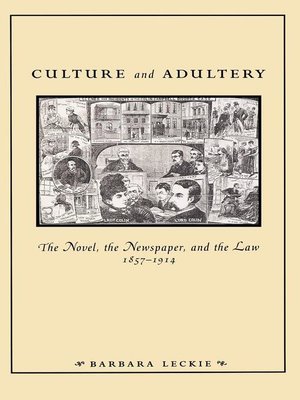Culture and Adultery
ebook ∣ The Novel, the Newspaper, and the Law, 1857-1914 · New Cultural Studies
By Barbara Leckie

Sign up to save your library
With an OverDrive account, you can save your favorite libraries for at-a-glance information about availability. Find out more about OverDrive accounts.
Find this title in Libby, the library reading app by OverDrive.



Search for a digital library with this title
Title found at these libraries:
| Library Name | Distance |
|---|---|
| Loading... |
Adultery, it is often assumed, was not a major concern of English culture during the Victorian age, and the apparent absence of adultery—indeed, of all explicit representations of sexuality—in turn made censorship for obscene libel unnecessary. Very few writers, conventional wisdom has it, were bold enough to defy the powerful implicit constraints imposed upon literary production.
If we find no English Anna Karenina or Madame Bovary, Barbara Leckie nevertheless demonstrates that adultery preoccupied English culture during this period. After the Matrimonial Causes Act of 1857 was passed, adultery was prominently discussed in the Divorce Court. Transcriptions of divorce trials were an immensely popular front-page feature of almost all daily newspapers for more than fifty years. At the same time as narratives of adultery stood at the center of sensation novels such as Mary Elizabeth Bradden's The Doctor's Wife, literary reviews and cultural debates strongly encouraged serious novelists to avoid the topic.
In Culture and Adultery, Leckie mines novels, newspapers, court and Parliamentary records to explore several related sets of issues. How, first, did adultery become "visible" in the public sphere in the second half of the nineteenth century? Why, conversely, has the discursive history of adultery been deemphasized in the English critical tradition? And how is the history of the Victorian and early twentieth-century English novel revised when the culture's concern with adultery and censorship are reintroduced?







